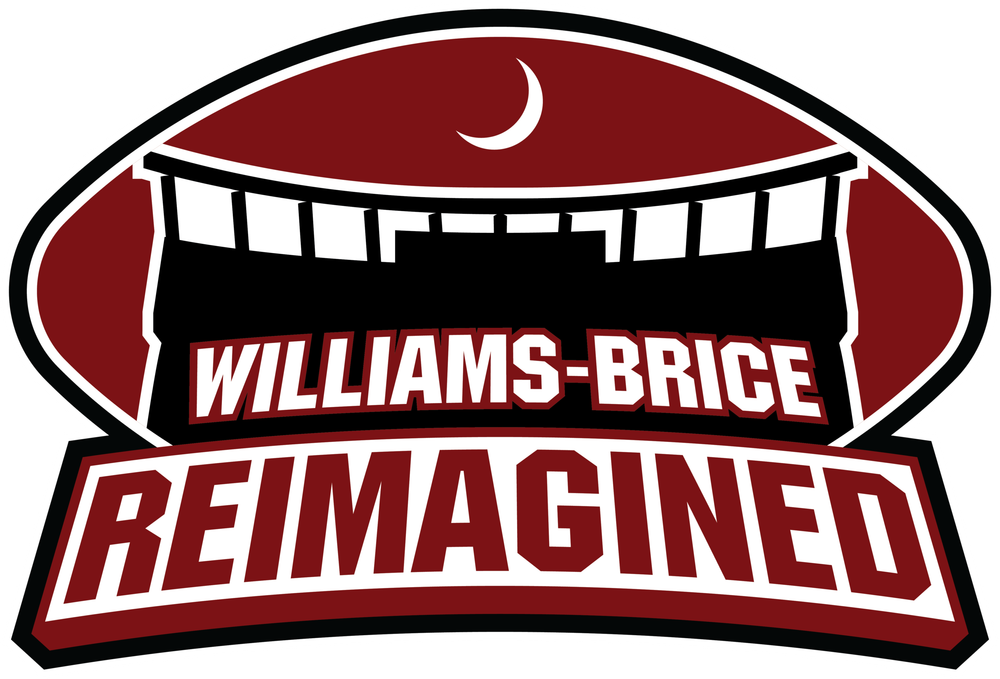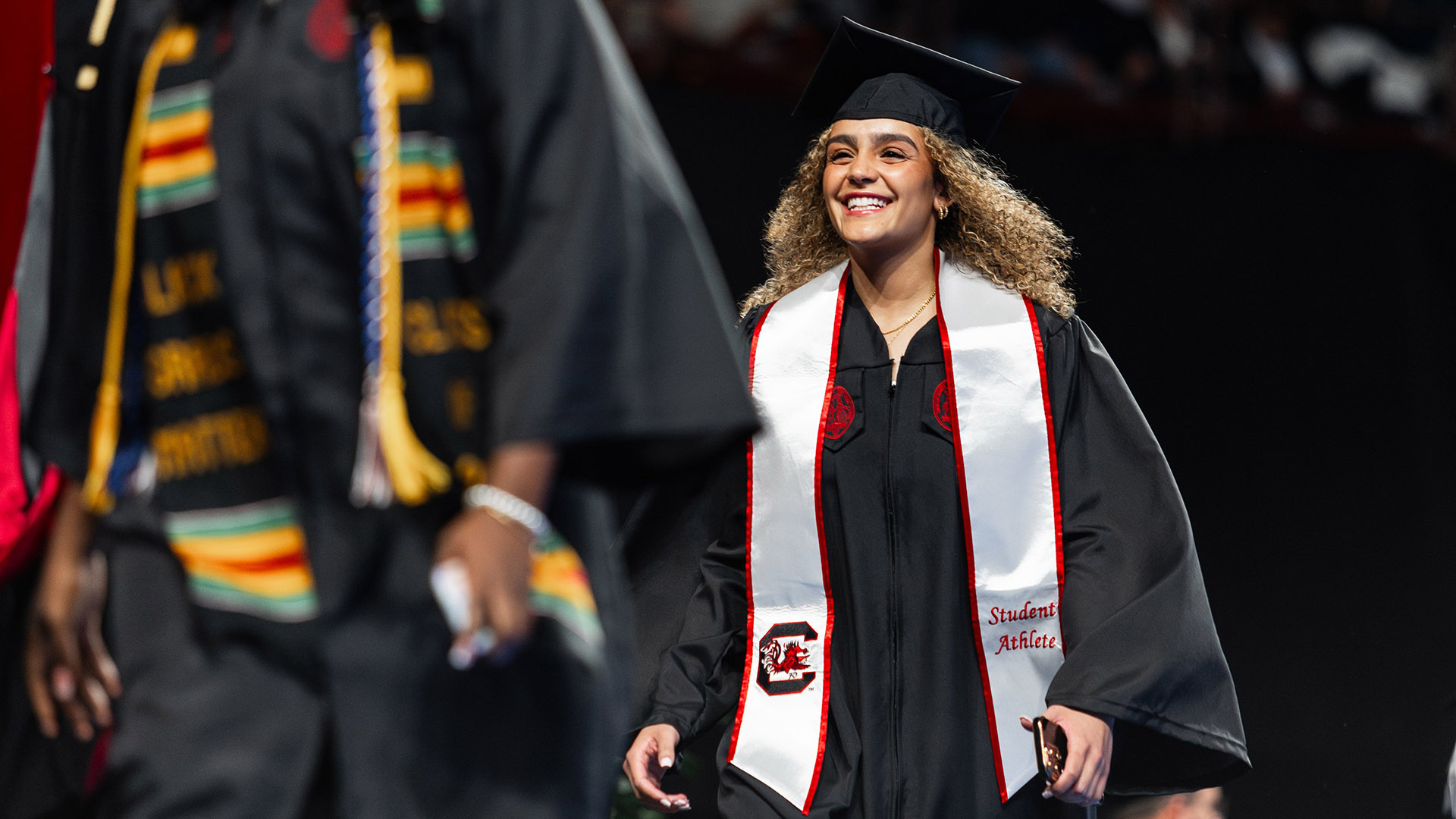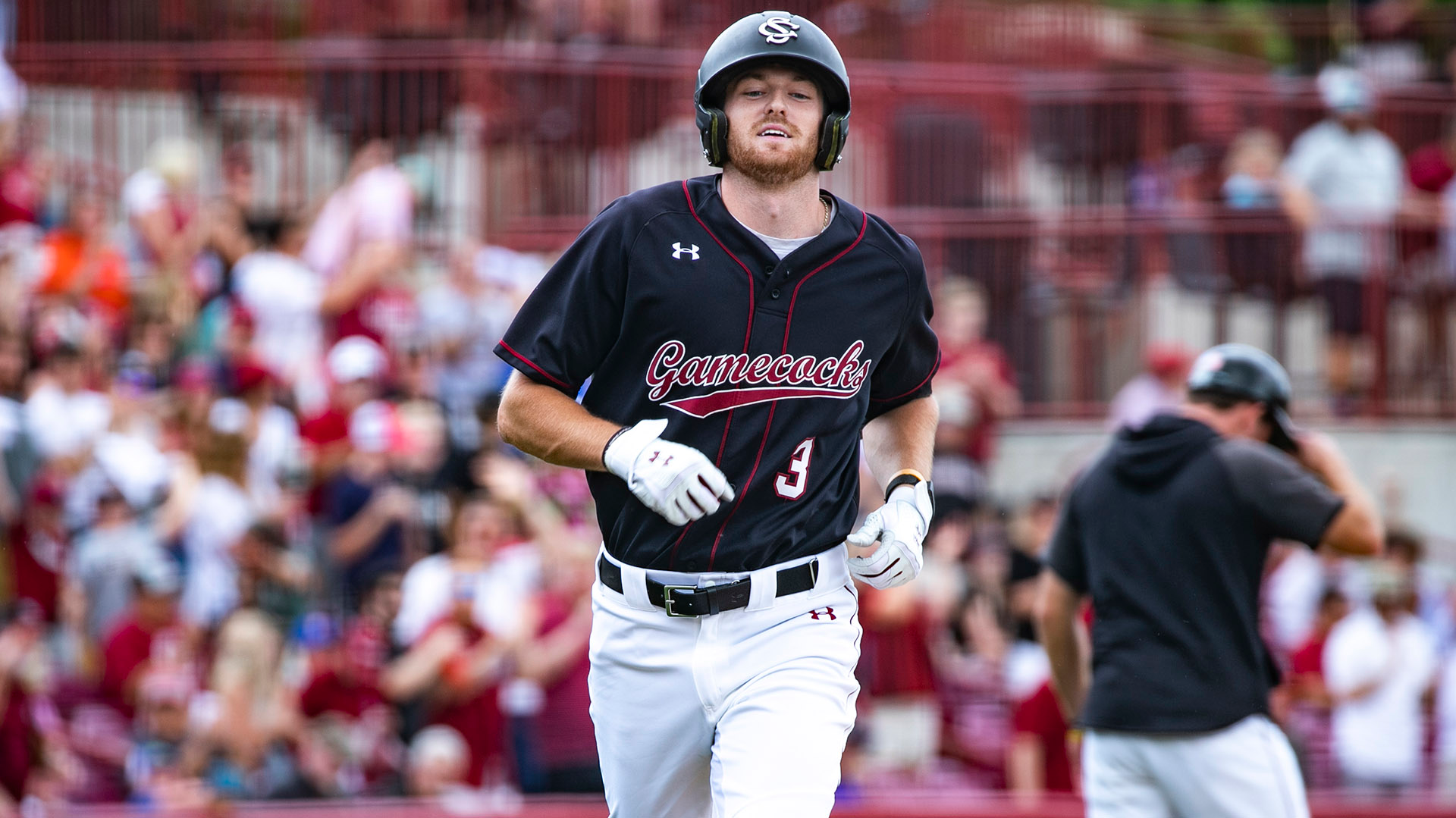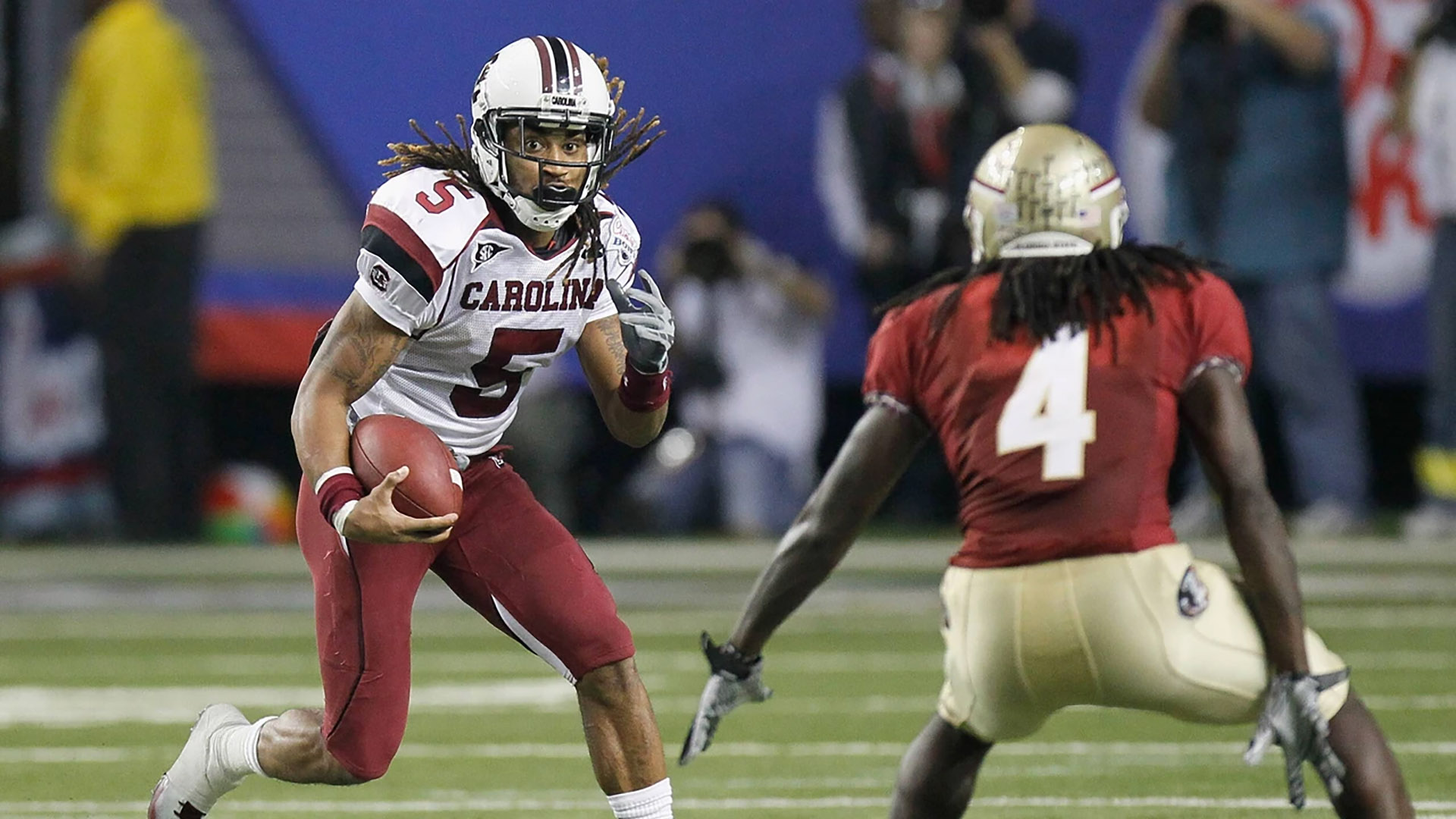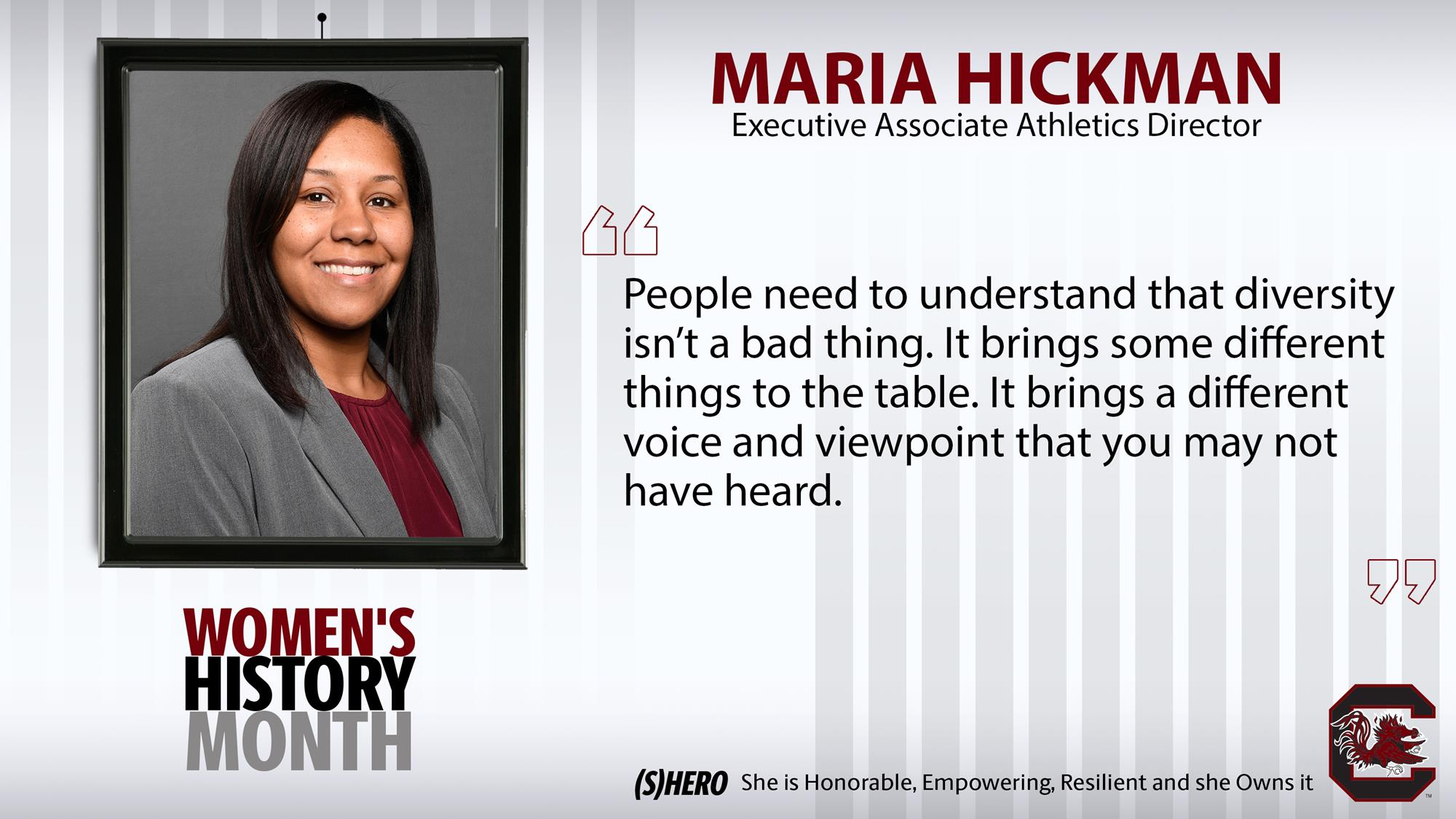
Hickman Encourages Women to Be Confident in Career Pursuits
Maria Hickman has worn a lot of hats in her career in college athletics, including the last 14 years at South Carolina. She is currently the Executive Associate Athletics Director, Senior Woman Administrator (SWA), and Chief Diversity Officer for the University of South Carolina Athletics Department. In a field once dominated by males, Hickman’s path from student-athlete to a high-level administrator at an SEC school should serve as inspiration to current student-athletes.
“There are a lot of things I say to young women,” said Hickman. “Be very confident. Know your stuff, because when you’re called on, if you don’t know it, you’ll be second-guessed. This is a very male-driven industry. You have to be OK with sometimes being the only woman in the room, and for me, the only woman of color in the room. That does put an extra layer of pressure on it, but you can’t think about it that way. You have to just embrace every day and come prepared.
“I also like to tell young women that you can have your cake and eat it, too. Some women think they can’t have children or be married and be in this field. It is difficult. I have two young children.”
Progress has been made in recent decades to provide more opportunities for women to work in sports, and Hickman hopes the next generation will continue to break down barriers.
“I cannot wait for the day that we don’t have to say, ‘the first,'” Hickman said. “Like, in the SEC we have our first black woman Athletics Director (Vanderbilt’s Candice Storey Lee). When can we get to that point where we don’t have to say, ‘we have that first.’ It’s all about opportunities. For decision-makers, the room has to look different. If it’s room full of people who look the same, some of those opportunities for people who look like me will not happen. People need to understand that diversity isn’t a bad thing. It brings some different things to the table. It brings a different voice and viewpoint that you may not have heard.
“Forty years ago, we wouldn’t be talking about things women are doing now. I’m very hopeful that more women, and more women of color, will have opportunities that they haven’t had.”
Originally from Statesville, N.C., Hickman played basketball at Mars Hill College and graduated in 2002 with a dual bachelor’s degree in business administration and sports management. She later earned her master’s degree in sport administration from the University of Louisville in 2004.
“I don’t think I knew I wanted to work in college athletics until I went to grad school,” Hickman said. “I always played basketball, so I’ve always been around sports. I came from a family where my mom really pushed education. I did my undergrad and got my degree, but I really didn’t know what I wanted to do. So, I worked for a year and realized I wanted to go back to school. That’s where I found this profession in academics and started working as an academic advisor. It married the two worlds together that I’ve always loved with sports and having education as well.”
Prior to her arrival in Columbia, Hickman worked at the University of Richmond from 2005-2007, where she served as an Academic Coordinator for several teams and was also a Life Skills Coordinator. She chose to go to a smaller NCAA Division I school where she could get more hands-on experience in academics.
“There were three of us in that office for academics,” Hickman said. “It was a good atmosphere and environment for my first job.”
She came to Columbia in 2007 and was hired by a former mentor from Louisville, Raymond Harrison, who had been hired at South Carolina. She initially served as an academic advisor for football. She worked her way up the ladder and was later promoted to Director of Academics where she was charged with building academic excellence while graduating student-athletes at a high percentage.
“It was a challenge when I first got here. At the time, we didn’t have half the things we have now. There was no Dodie Academic Center. I can remember having study halls in the library. We would truck over there twice a day and have study hall. It helped create what we have now.”
“You have no reason not to be successful in the world of athletics today with all the resources that are available.”
In 2013, Hickman was promoted to Associate Athletics Director for Academics and Student Development and oversaw the new Dodie Anderson Academic Enrichment Center and the daily academic and student development operation for all Gamecock student-athletes. Two years later, she was promoted to Senior Associate Athletics Director for Academics and Student Development.
“I think I’ve always been very driven. I knew I wanted to be in administration and at least have sport oversight at some point. I never gave myself a timeline for what that would look like, so when opportunities presented themselves, I just made sure I was ready and could do the job. Raymond had really prepped me to help me learn budgets, how to manage a staff, and do evaluations, so that when it was time for me take over academics, it was an easier transition.
“I always challenge myself. To be honest, (Athletics Director) Coach (Ray) Tanner took a chance on me. He was a baseball coach, and I was a football advisor. I built that relationship with him when he was a new A.D. at the time, and we learned and grew together. When opportunities came about, I just shared with him what my goals were.”
Hickman’s current responsibilities include serving as the sport administrator for women’s basketball and beach volleyball. She also has oversight of sport administrator meetings, creation and oversight of department diversity and inclusion committee as well as execution of departmental diversity action plan. In her role as SWA, Hickman participates in SEC governance.
“This role has been different than when I was in academics because I’ve always been so student-based that it was a challenge for me when I became Executive Associate A.D. and not being in the Dodie and being around students because that was what fueled me. Now, I have to be more intentional to have those interactions with student-athletes. My whole career has been student-based on how do you help prepare students for what’s next in life and making them better. I’ve realized now in this role, I’m still making an impact, but it just looks different. While I’m not touching students every day, I’m in decision-making, creating policy, and making programs that are still going to affect them.”
Having once been a competitor on the court, Hickman understands a lot of what student-athletes go through. She may have some different perspectives, having played at a NCAA Division II school, and she also understands that a student-athlete’s life today is a lot different than it was two decades ago.
“I went to a Division II school, so a lot of the things we have here, we didn’t have when I played,” Hickman said. “We didn’t have academic advisors. Our coaches ran our study halls. The resources that are provided here now, from nutrition, the weight room, community service, and student-athlete development, are all things we didn’t have.
“You have no reason not to be successful in the world of athletics today with all the resources that are available.
“The world of college athletics has completely changed in the last 10 years. It was driven about the term ‘student-athlete,’ where you come in and get an education and enjoy that experience. There is a big question mark on what college athletics is going to look like (in the future). What will college athletics look like five years from now?”
Whatever changes may come in college athletics, Gamecock student-athletes can take comfort in that Hickman has the experience and the passion to help them and the department navigate through them.


